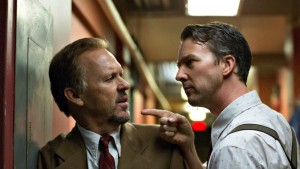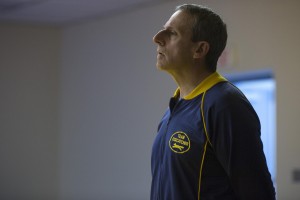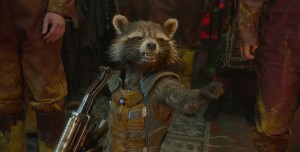His truth is marching on
Today is Martin Luther King’s birthday. He would have been 86. Today is also the day the Academy Award nominations were announced. Selma, the brilliant film about King and the Selma marches of 1965, was nominated for Best Picture, but its director Ava DuVernay and star David Oyelowo were not, and those are as egregious snubs as any in many years. Here’s my review, which can also be found at San Diego LGBT Weekly:
Selma
Directed by Ava DuVernay
Written by Paul Webb
Starring David Oyelowo, Tom Wilkinson, and Carmen Ejogo
At your local multiplex
Selma, the film about Martin Luther King and the 1965 marches from Selma to Montgomery, is an extraordinary film: wrenching, inspiring, and impeccably made. As a depiction of one of the most important events of the Civil Rights Movement, it is also more socially and politically relevant to our contemporary world than any feature film released this year. Its connection to the recent protests against racist police brutality is the reason that Selma is essential viewing and also the reason why so many people who normally wouldn’t give a second thought to historical accuracy in movies have wrapped themselves into the controversy about the film and its depiction of President Lyndon B. Johnson.
In 1965, Martin Luther King had just won the Nobel Peace Prize. Two years prior he had made the “I have a dream” speech at the Great March on Washington, which helped propel the passing of the Civil Rights Act of 1964. But blacks in the South still faced numerous barriers to voting, from being forced to pass absurd tests to requiring a current voter to vouch for them, particularly difficult if there were no black voters around. In 1965, King wanted Johnson to use his rather great political power to pass a comprehensive voters’ rights bill. But Johnson wanted to focus on his War on Poverty that year. This disagreement is inarguably fact, but the fictionalized depictions of King and Johnson’s actual arguments have riled a bunch of white people who can’t bear to imagine Johnson was a cynical politician. (Note: It is inarguable fact that Johnson was a cynical politician. That’s one of the reasons he got so much done.)
The events in Selma, a town with a majority of black residents, only 2% of whom could vote, helped force the Voting Rights Act into existence. Selma is about how that happened, how King’s presence in Selma brought the media, which in turn showed how the Alabama state troopers viciously beat peaceful black protesters who were trying to raise awareness about their disenfranchisement, which in turn brought more protesters and more support, from both Johnson and the American people, for a voting rights bill.
Selma has two main plots. One is focused on the political machinations of the march, both among King (David Oyelowo), Johnson (Tom Wilkinson), and intransigent Alabama governor George Wallace (Tim Roth) and among the civil rights activists from King’s Southern Christian Leadership Conference and the Student Nonviolent Coordinating Committee, which had been organizing in Selma before King arrived. These are fascinating, both because of how they humanize and complicate iconic historical figures but also because they depict pragmatic, sometime even crass, strategizing around events that popular history have made to seem purely about the forces of good versus evil. For example, one of the reasons King and his associates wanted to march in Selma was because they knew that its sheriff would brutalize the protesters, thus garnering sympathy from the nation.
Selma’s other plot focuses on the emotional toll of the civil rights movement. Coretta (Carmen Ejogo), King’s wife, is frustrated by his constant absence, the danger they are in, and how close to the truth the rumors of his infidelity are. King himself wonders if he can ever succeed and whether he will survive. And in smaller, perfectly crafted subplots, the people of Selma struggle – in particular Annie Lee Cooper (Oprah Winfrey) and Jimmie Lee Johnson (Keith Stanfield) – for dignity and for their lives. And in the epic sequence focused on Bloody Sunday, the day when Alabama troopers savagely attacked the marchers, director Ava DuVernay brings to life one of the most horrific moments of the 1960s with such skill I was left in tears for the rest of the film and for sometime after.
DuVernay’s work on Selma is tremendous, and it announces a major American filmmaker. Her recreations of well documented events are flawless, but so are her quieter, mostly fictionalized, scenes, such as those between King and Coretta or between Cooper and Selma’s voter registrar. The performances she pulled from her cast, in particular Ejogo, Winfrey, Stanfield, and Oyelowo, are roundly wonderful. What the amazing Oyelowo does as King is to make a legendary and iconic hero into a man – a great, flawed, human man.

















